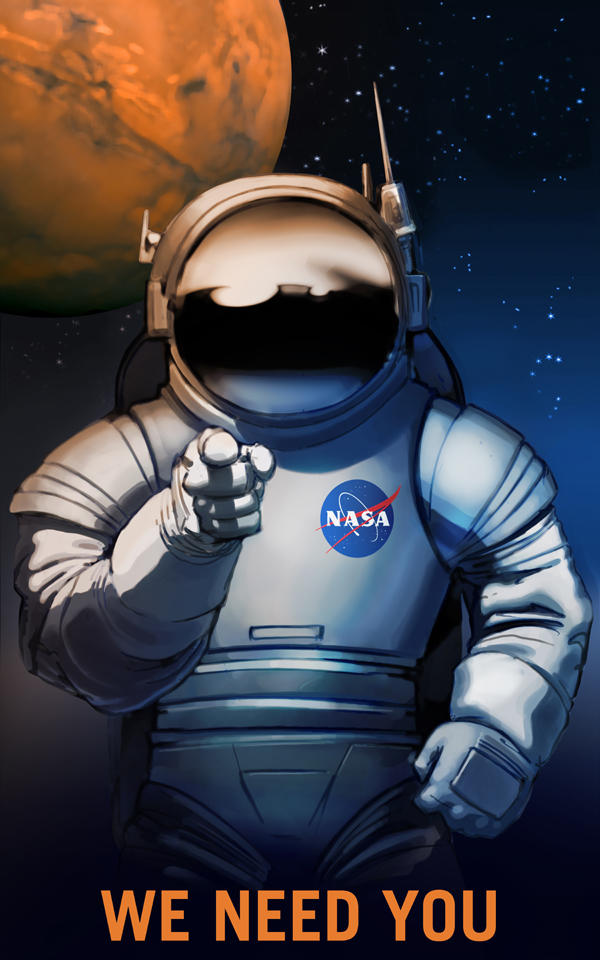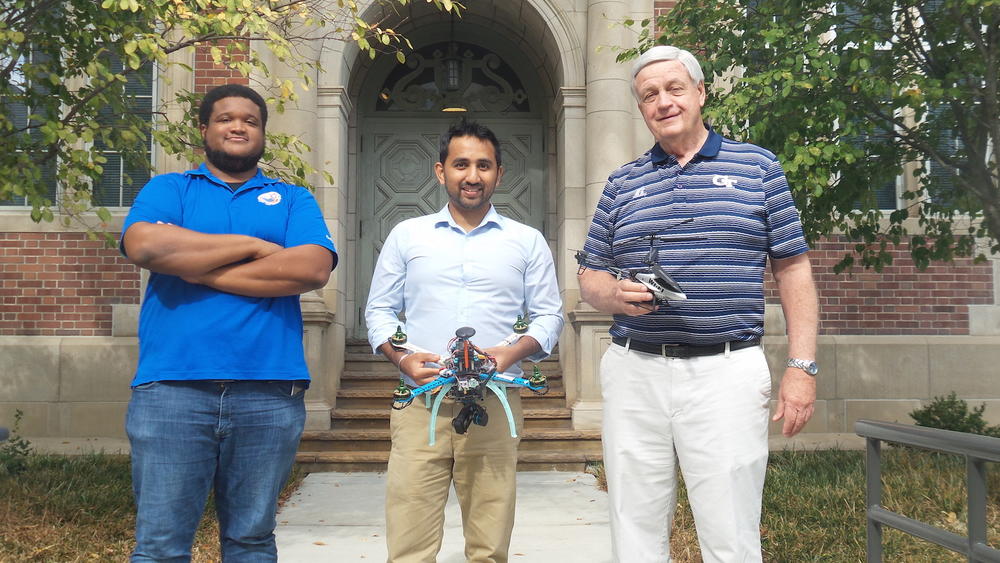Section Branding
Header Content
Georgia Students Reach For The Stars, But They'll Start With Mars
Primary Content
The first Mars astronaut has probably already been born, even if it wasn’t that long ago. He or she could be in Atlanta at one of Fernbank Museum’s planetarium shows.
It could be 17-year-old Kristen Baker, who will be attending Georgia State University in 2017 to study astronomy. It could be 9-year-old Everett Glover who wants to be the first person to take selfies on Mars.
Regardless, both were in attendance at the Fernbank Planetarium’s “From Earth to the Universe” show, along with scores of other families. The interest in space exploration isn’t dying down any time soon.
Selfies aside, it’s going to take a lot of work to get there.
Planetarium instructor Scott Harris says much more research is needed to even get close to Mars by the 2030s. In addition to leading planetarium shows, Harris is also a planetary geologist who teaches DeKalb high school freshmen about space.
Just a few feet away from the planetarium is the Engineer Maker Creativity Center, or as Harris has nicknamed it, EMC squared. There, NASA Mars posters line the walls next to shelves of brightly colored “Lego” kits.
Harris explains the kits are actually pieces to build electronic and engineering models. Although he’s excited about the possibility of manned Mars missions, he is still a bit skeptical on the timeframe.
”We will not send anybody there or let anybody try to go there unless we have a very high certainty of success. We’re not in the business of sending people out to die,” Harris said.
Researchers agree it’s going to take diverse talent from different locations, backgrounds, and ages. But when NASA solicited ideas for informal Mars education grants, it all led back to one man.
Georgia Tech professor Daniel Schrage is no stranger to summer engineering camps. For years, Georgia Tech has led the Engineering Design Summer Camp in their Integrated Product Lifecycle Engineering Laboratory (IPLE), and has even partnered with the U.S. Defense Advanced Research Projects Agency (DARPA) for projects during their summer camps. In addition to teaching courses in aerospace engineering, Schrage directs the Integrated Product Lifecycle Engineering Laboratory (IPLE). Schrage was excited about the possibilities of the partnership, then disappointed when the partnership ended unexpectedly.
In 2015, NASA released a National Research Announcement for informal education grants on Mars. Schrage jumped at the chance and submitted his proposal with the help of some colleagues.
He's the mastermind behind the Innovative Mars Exploration, Education, and Technology program (IMEET). The program is a Mars education summer camp for five sites across the country: the IPLE at Georgia Tech, the Coca-Cola Space Science Center in Columbus, the Museum of Aviation Education in Warner Robins, the South Florida Science Center and Aquarium in West Palm Beach, Florida, and the University of New Haven in West Haven, Connecticut.
Campers will have two main goals: learn the history of Mars missions and collaborate on engineering projects.
Georgia Tech has offered space camps for years, but this is the first one solely focused on Mars.
Professor Srujal Patel is Schrage's right-hand man for I-Meet. Patel says, “When [NASA] released this research announcement, they listed out their goals that each proposal must target. One goal was to target underrepresented students. The other goal was to have, impact a hundred thousand teachers.”
Each camp will be comprised of 20 students. At least 15 of these students must be from historically underrepresented groups.
To engage these students, IMEET is in partnership with the NASA Space Grant Consortium in Georgia. According to the director of the NASA Space Grant Consortium in Georgia, Stephen Ruffin, the consortium has a wealth of contacts in their network to reach these students. In addition to reaching out to non-profit organizations, they will also contact connections at universities across the state, including six historically black colleges and universities.
The other partnership is with the Southern Regional Education Board (SREB). SREB develops their own aerospace curriculum and has worked with Georgia Tech to train teachers in the past, but never as part of a camp.
Gene Bottoms has over 30 years with SREB. His office is a few blocks from Georgia Tech and every surface is covered with neat stacks of curriculum and education policy documents.
Bottoms said, “They would not only have people teaching this course from Georgia but would have teachers from all of SREB 16 states and beyond who would come here for that training.”
As part of IMEET, SREB will help train teachers and include the IMEET curriculum in schools in 13 SREB member states.
Schrage’s highest ambitions for the program is that training teachers will extend interest in Mars past the grant's three year expiration date as well as shift from informal education into school curriculums all over the world.
According to Schrage, “If it’s just a camp, just an informal education institute and that’s all you’re thinking of, you probably don’t need teachers. But if you’re thinking of helping with that transition into the formal curriculum, then you’ve got to have teachers involved too.”
Georgia high school students who might want to help chart the path to Mars can apply for the summer camp next spring.


